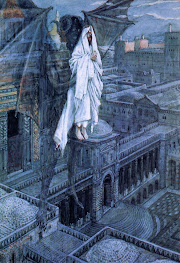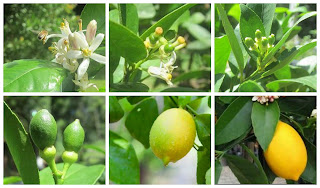4th Passiontide (Palm
Sunday)
Matthew 21:1-11
And
they approached Jerusalem and Hippolyte Flandrin
came to
Bethphage by the Mount of Olives. Then Jesus sent two disciples ahead
and said to them, "Go to the village which you see before you and at once
you will find a donkey tied there and her foal with her. Untie them and bring
them to me. If anyone says anything to you, tell him that the Lord needs them,
and he will let you take them right away."
This took place to fulfill what was spoken through the prophet:
'Say to the daughter of Zion,
Behold, your king comes to you in majesty.
Gentle is He, and He rides on a donkey and a foal of the beast of burden.'
The disciples went and did as Jesus had instructed them. They brought the donkey and the foal, placed their garments on them, and Jesus sat on them.
Many from the large crowd spread their clothes on the road, while others cut branches from the trees and spread them on the road. The crowds that went ahead of them and followed Him shouted:
Hosanna
to the Son of David!
Blessed
is he who comes in the Name and Power of the Lord!
Hosanna in the highest! [or, Sing to Him in the highest heights!]
When Jesus entered Jerusalem, the whole city was stirred and asked, "Who is he?" The crowds answered, "This is Jesus, the prophet from Nazareth in Galilee."
4th
Passiontide Sunday
Palm Sunday
April
10, 2020
Matthew 21:1-11
This mysterious picture – Christ Jesus asks for a donkey and its foal to be brought to Him. Upon them, He will ride into Jerusalem, the city of peace. Why donkeys? Why two?
Francis of Assisi famously called his body Brother Donkey. The donkeys of our bodies are the earthly means of conveyance for our souls and spirits. Our donkey is strong, stubborn, and willful. For most of us, if the body decides to go somewhere, say, into illness, it is about all we can do to hang on for the ride.
Christ chooses donkeys as His means of conveyance as a living symbol of the final phase of His earthly life. He is choosing the human body as His final battleground. His triumphal entry into Jerusalem foretells the fully accomplished entry of His spirit into the body of Jesus. Today He rides the donkey of the physical nature, both the old body and the new immortal one he will inhabit at His resurrection.

At the Last Supper and its iterations, He wields the power to make bread and wine into His immortal body and blood so that He can feed us His own immortality. With His help, we, too, can make our sufferings fruitful. Through our connection with Him, we can, bit by bit, build the new body that is not subject to death, the Christ-body that comes to life in us, through us, in our offering.


















